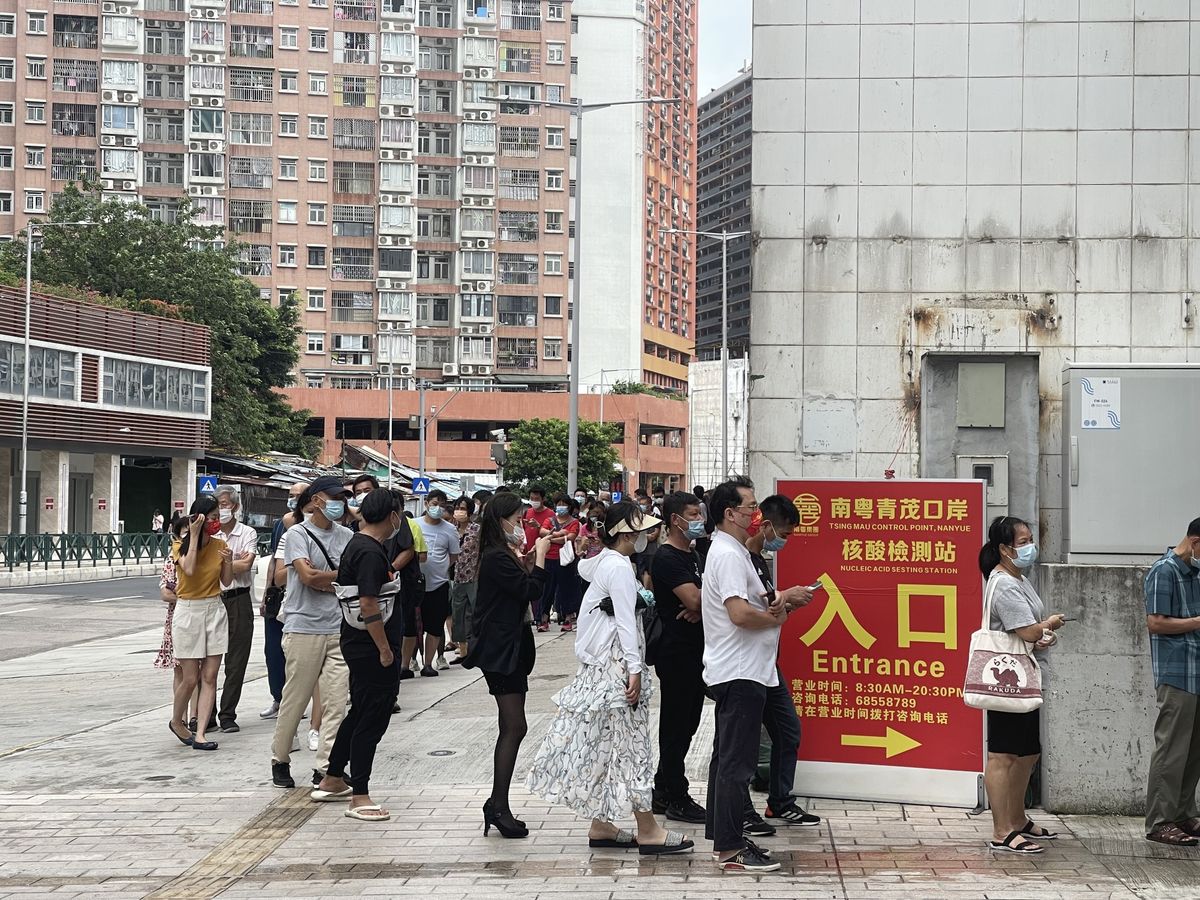Posted on: June 20, 2022, 05:10h.
Last updated on: June 20, 2022, 02:23h.
It may be 2020 all over again for Macau. A new outbreak of COVID-19 is forcing the city to order business and school closures. But for now, casinos remain open.

This new outbreak occurred suddenly and is spreading quickly with no known source, according to Macao’s chief executive Ho Iat Seng. The most recent COVID-19 scare in Macau occurred in October of last year. However, yesterday morning, authorities announced 12 new cases, which grew to 31 by Sunday night.
This year, more than one million people were infected in Hong Kong, China’s second special administrative region (SAR). There were also more than 9,000 deaths. Hospitals and the public services were overwhelmed by the outbreak. Macau only has one public hospital, already operating with overburdened resources.
The confirmed cases range in age from eight months to 89 years old. Some 18 of them are symptomatic, with 23 remaining asymptomatic. As a result of the positives, authorities have conducted tests on 602 people who may have had direct or indirect contact with those individuals.
Emergency Declared
After the initial confirmed case, the government checked the address and workplace of the patient. It found that at least 10 people had been confirmed to be positive in the same building.
The SAR then declared an immediate emergency of prevention, canceling or suspending sports facilities. Later, the government announced that it would close most of its offices Monday and Tuesday.
Ao Ieong U, Secretary for Social Affairs and Culture, said at a press conference Sunday morning that he hoped other venues would close down as well. While no government order would force casinos to shut down, it could come if the outbreak grows.
The region is also increasing testing. Anyone wishing to leave Macau as of Sunday morning has to present a certificate proving a negative result for COVID-19. They must take the test within 24 hours of their travel, according to a press release by the city government.
Authorities in Zhuhai in China’s Guangdong province are also scaling up testing. They announced that people traveling from Zhuhai to Macau will need to present a negative test result within 48 hours of departure.
The Macau authorities also advise the public not to leave their home. Temporarily, there’s a suspension on in-restaurant dining – only takeout is allowed. In addition, a few resorts across the city have temporarily closed many attractions. Others are trying to hold out, but have reduced their operating hours.
Casino Revenue to Suffer
Even before this latest outbreak, analysts weren’t overly optimistic about Macau’s chances of making a fast recovery. They predicted the pandemic would impact the SAR for at least another five years. However, the new string of positive cases could make things worse.
Analysts with JP Morgan believe that gross gaming revenue (GGR) could fall to “near-zero levels” for a couple of weeks, perhaps longer. DS Kim and Livy Lyu foresee a significant reduction in inbound traffic and “expect the market’s focus shifting to cash-burn and liquidity situation under the worst-case scenario.”
Bernstein analysts feel the same way. Vitaly Umansky, Louis Li, and Shirley Yang forecast in an update that while casinos can still operate, Macau may decide to completely suspend inbound traffic. Should that happen, GGR will “plummet close to zero” and be much lower this month and next.
That could seriously impact several casino operators as Macau prepares to introduce its reformed gambling laws. Macau’s Legislative Assembly will likely vote on tomorrow’s final version of those gambling laws.
The six operators must show $625 million in cash when Macau issues new concessions at the end of the year. If they don’t have it, they have no chance of receiving a new license.
Kim and Lyu point out that Sands China and SJM Holdings are in the worst financial shape among the six. They both only have enough to stay afloat until next March, according to the analysts. Sands China is already counting on a bailout from its parent company, Las Vegas Sands.
Galaxy Entertainment is the strongest. The JP Morgan analysts believe it has enough liquidity to stay alive for 60 months, even if it doesn’t receive new revenue for the next couple of weeks.
All six, however, can survive. Bernstein’s analysts believe they “should have access to ample liquidity” to overcome a short-term suspension of operations.
